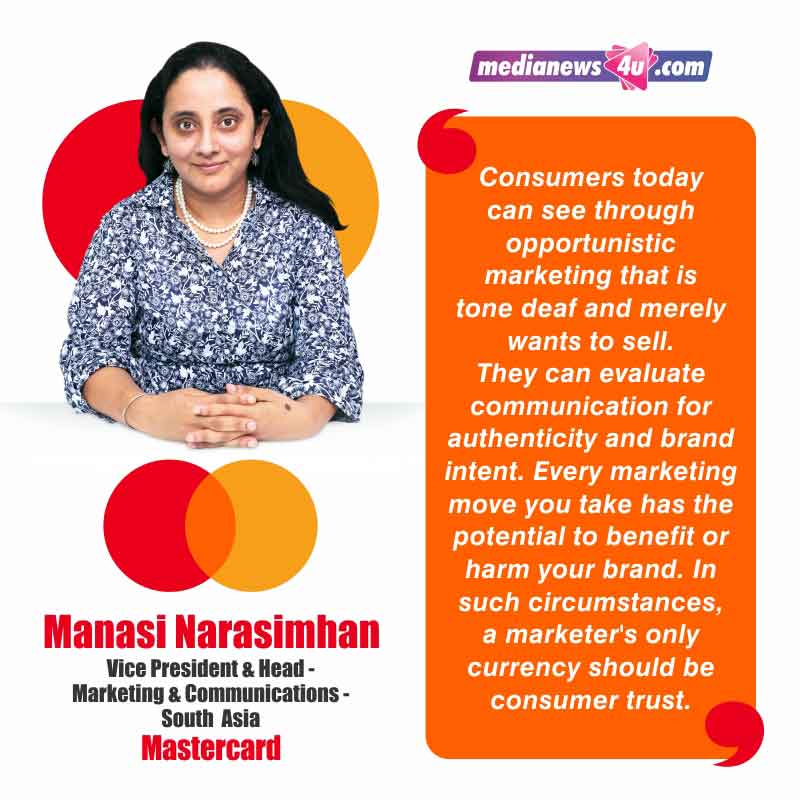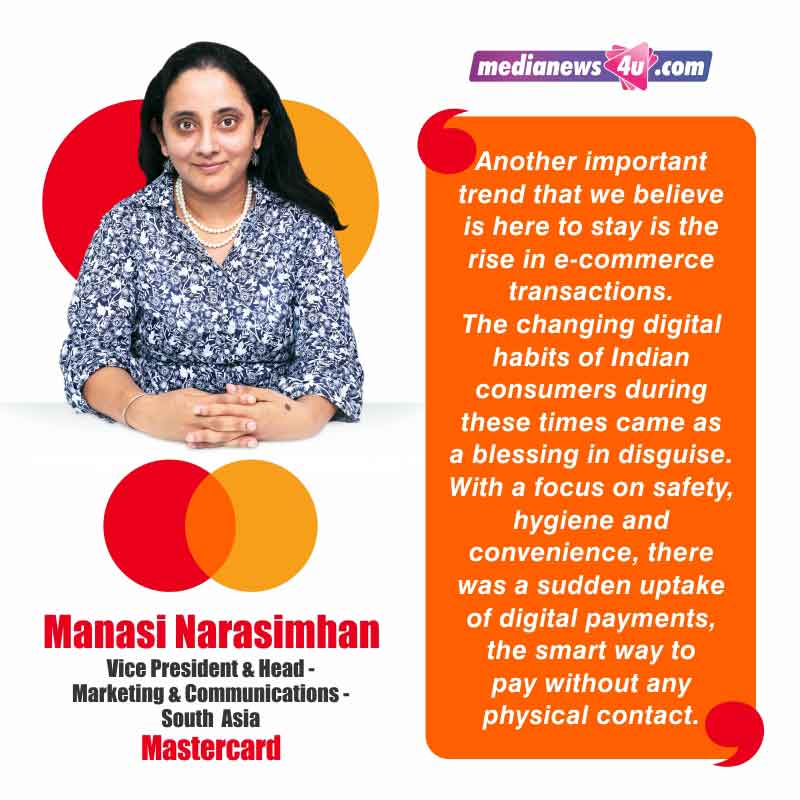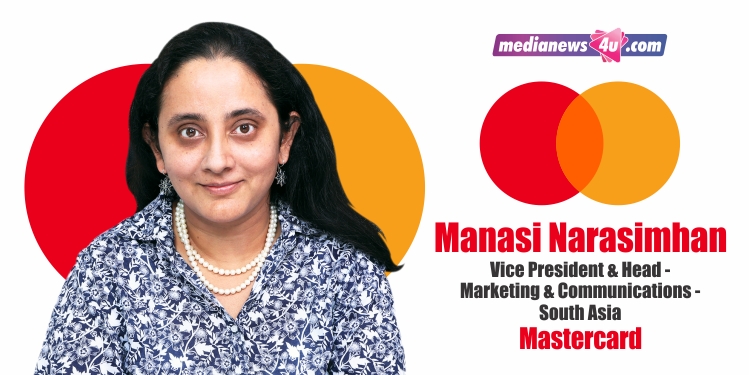Medianews4u spoke with Manasi Narasimhan, Vice President & Head, Marketing & Communications, South Asia, Mastercard on connecting with consumers, contactless commerce, nurturing the digital payments ecosystem and the brand’s association with golf and MS Dhoni.
What has been your marketing strategy for building a connect with cardholders?
The most important lesson for marketers is to communicate in a human-centric and compassionate manner. Consumers today can see through opportunistic marketing that is tone deaf and merely wants to sell. They can evaluate communication for authenticity and brand intent. Every marketing move you take has the potential to benefit or harm your brand. In such circumstances, a marketer’s only currency should be consumer trust. With evolving consumer behaviour and increasing consumer expectations, it has become vital to build strong trust and personalised relationships with the customers.

Smaller towns are said to be becoming growth centres, with attendant digital payments. How does Mastercard analyse this?
The Covid19 pandemic led to a transformation in the payments industry. It accelerated the adoption of digital payments by consumers, not just in metro cities but also in tier 2 and 3 cities. According to a report, online transactions witnessed a surge of 82pc between 2020 and 2021 in the tier 2 cities. As lockdowns became the new normal, businesses and consumers increasingly went digital, and looked for alternate touch-free options to make purchases. This further pushed merchants across country to adapt to digital payments. Overall, the total digital transaction volume in 2020-’21 stood at Rs.4,371 crore, as against 3,412 crore in 2019-’20, attesting to the resilience of the digital payment system in the face of pandemic.
We are committed to accelerating digital inclusion among the unbanked and under-banked population as part of our goal to expand digital payments infrastructure and adoption across the country. In line with this commitment, we have been closely working with MSMEs across the country to help them fit into the larger digital payments ecosystem by bringing them online, getting them access to digital know-how and credit.
Mastercard presented The DGC Open in March 2022. How has that played out for the brand?
Globally, Mastercard curates experiences around nine consumer passion points: sports, entertainment, music, travel, art & culture, culinary and dining, philanthropy, shopping, and environment. Similarly in India, the focus around partnering with The Delhi Golf Club for the DGC Open was to deliver a wonderful experience to Mastercard users.
Attending a golf tournament is nothing short of an experience which stays with you for a lifetime. It is one of the major sports that resonate well with our customer prospects and cardholders we would like to engage with. Thus, Mastercard’s association with golf in India is a natural extension of the multi-year partnerships with the PGA Tour and other marquee global tournaments such as the Arnold Palmer Invitational, The Open and the Mastercard Japan Championship.
Through our collaboration with DGC Open, we were able to co-create a golf event that not only brought top talent from all over the world to play in our country but also helped in contributing to the development of golf in India.
We were thrilled to witness the positive response it got from various stakeholders.
Are there any other sports you will look at associating with?
In an immensely diverse country, cricket has proven to be a major force that keeps the nation united. Recently, other sports have also started gaining popularity, but cricket remains to be the favourite of all Indian citizens. Mastercard has always scouted out ways to associate with cricket.
Through our association with MS Dhoni, we have successfully been able to broad-base our reach with small merchants and consumers and encouraged them to adopt digital payments over cash.
For instance, our campaign #ThankYouVyapaariyo was led by MS Dhoni to grow awareness about digital payments.
Another example is Team Cashless India campaign where MS Dhoni invited the merchant community to become part of a nationwide campaign to go cashless. Additionally, we also did a ‘Meet and Greet’ campaign with him wherein the ‘Top Loader of the week’ on the HDFC Regalia ForexPlus Card got a chance to meet him.
In the near future too, we will continue to explore such associations to build new conversations with our cardholders and link sports and technology.
What are the trends and focus points for 2022-’23?
The Covid19 pandemic forced people across the globe to cancel their travel plans as tourism was temporarily put on hold. According to a Mastercard survey, as travel has started to open up, 71pc of Indians want to travel for leisure and are showcasing interest in exciting offers.
During the Expo 2020 Dubai, Indians displayed a strong desire to experience this one-of-a-kind event and travel to Dubai. With our collaboration with Thomas Cook and HDFC bank, we were able to provide our cardholders with some exclusive offers. Furthermore, the rise in domestic and international tourism has opened multiple doors for us to drive the expenditure on cross-border payments and transactions, which has always been a key avenue for us.
Another important trend that we believe is here to stay is the rise in e-commerce transactions. The changing digital habits of Indian consumers during these times came as a blessing in disguise. With a focus on safety, hygiene and convenience, there was a sudden uptake of digital payments, the smart way to pay without any physical contact. Due to demands created by the impact of Covid19, India’s e-commerce industry is expected to grow by 84 percent to $111 billion by 2024.

Individuals and businesses have turned to e-commerce for all their needs, and this brings us a huge opportunity to create more meaningful value propositions for our cardholders.
Similarly, consumers are also choosing to shop with businesses that offer contactless payments. According to a Mastercard survey, 81pc of Indian respondents believe that contactless payments are here to stay. Hence, we believe that as enforced behavioural change becomes a regular habit, contactless commerce will become the new standard for consumers.

















